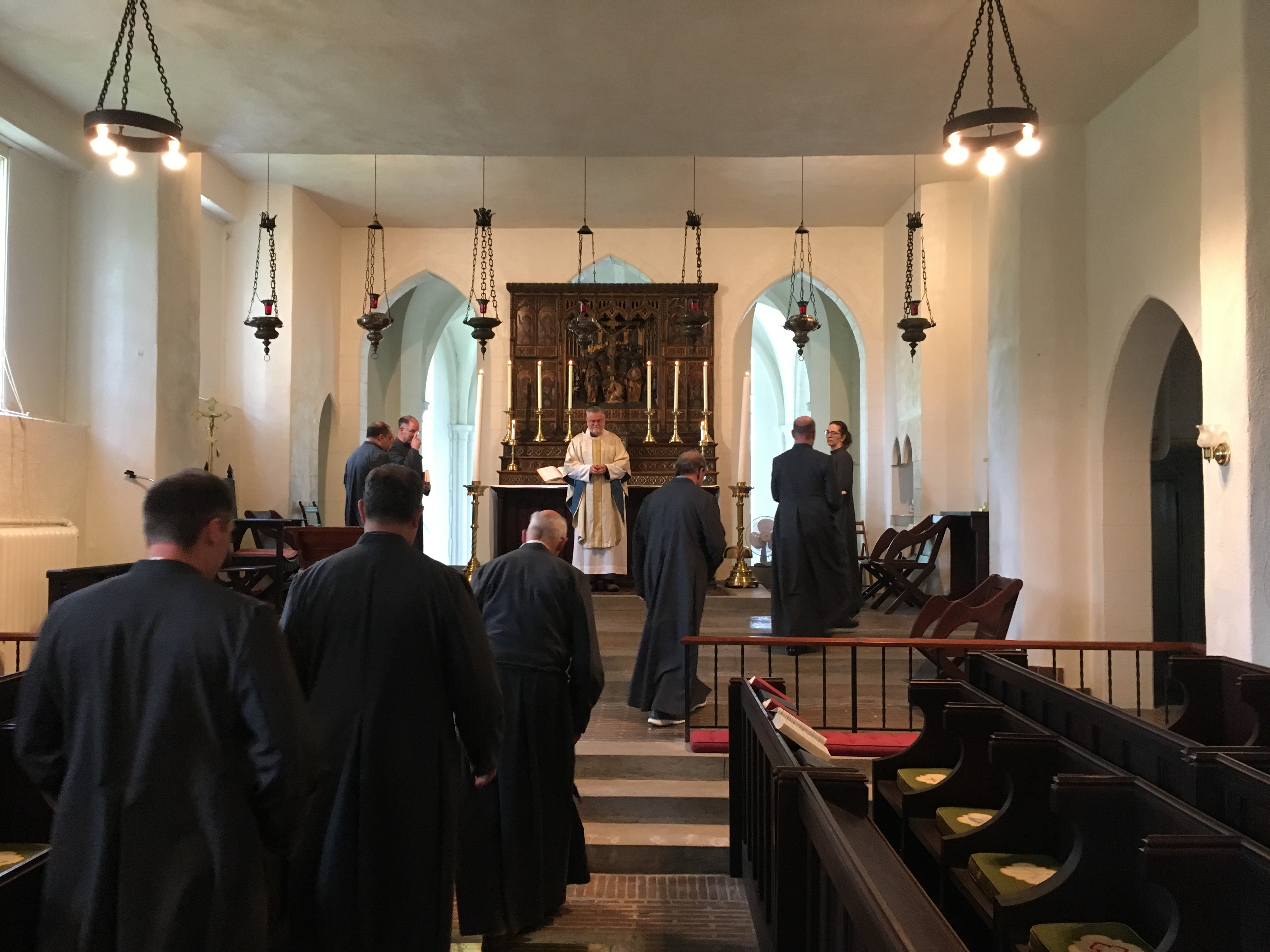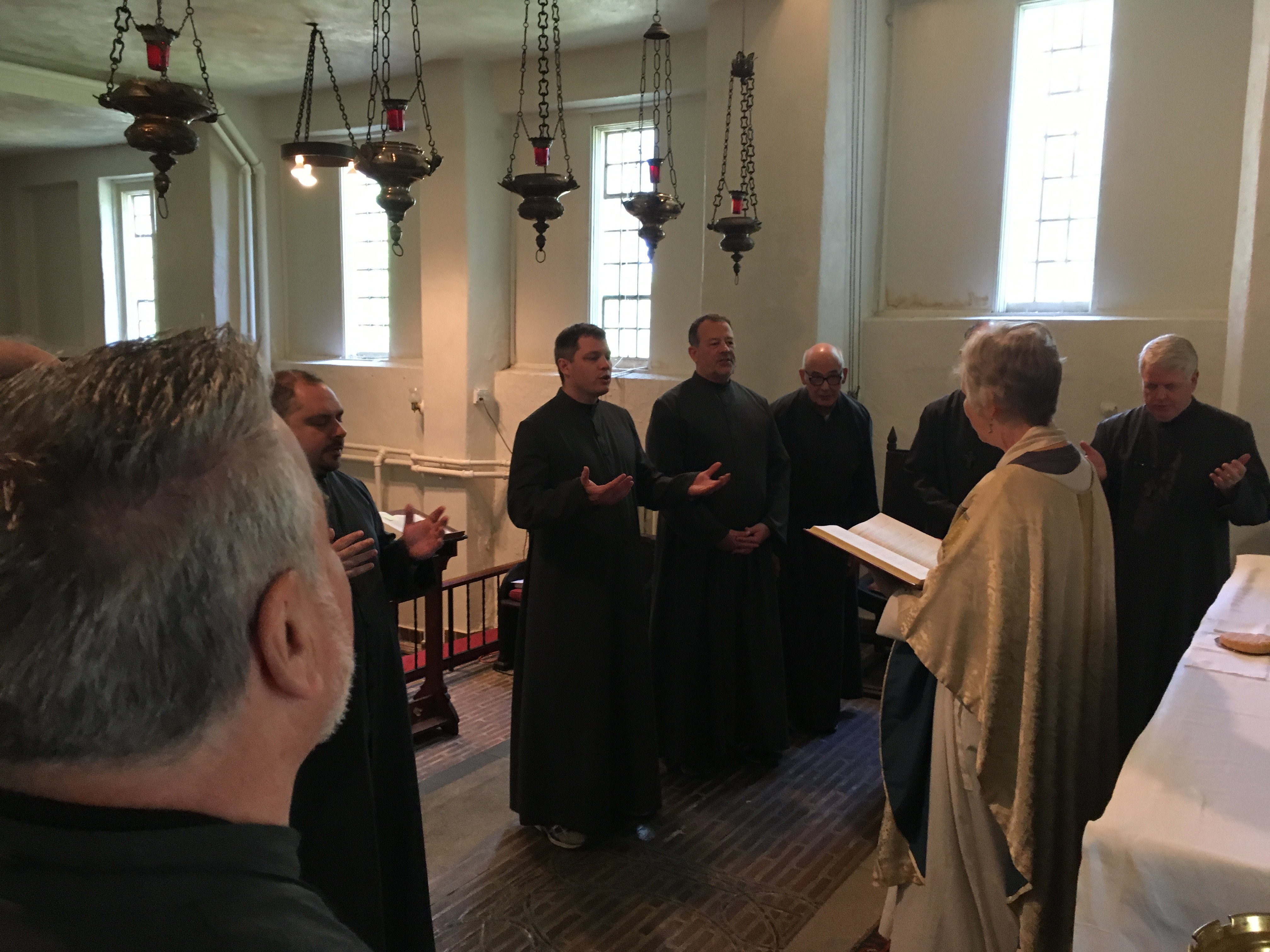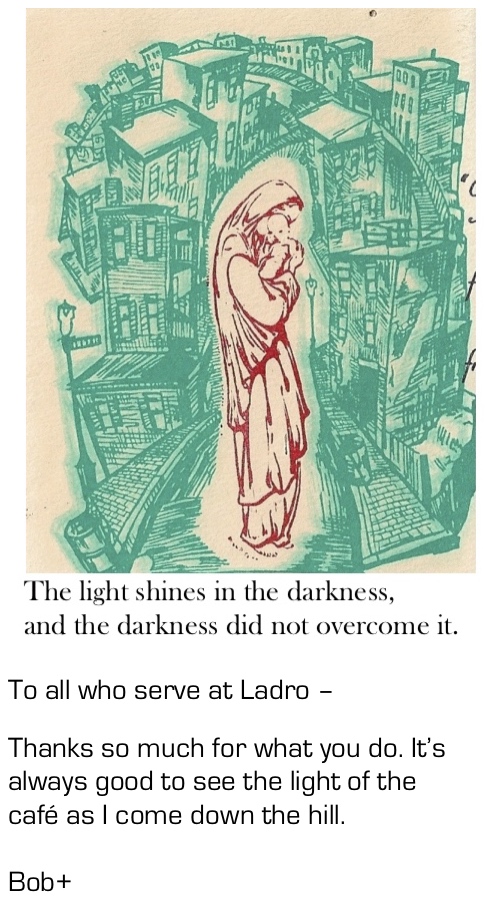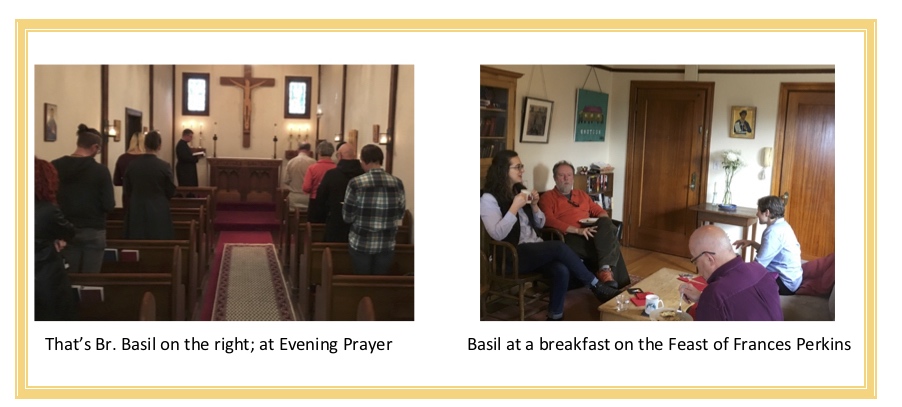Solid food
 Saturday, June 1, 2019 at 7:55PM
Saturday, June 1, 2019 at 7:55PM You need milk, not solid food … solid food is for the mature (Hebrews 5)
 This morning I read the Office and heard of milk and solid food. I also read “These Millennials Got New Roommates. They’re Nuns.” (NYT 5/31/19) [The article]
This morning I read the Office and heard of milk and solid food. I also read “These Millennials Got New Roommates. They’re Nuns.” (NYT 5/31/19) [The article]
The article begins this way,
Sarah Jane Bradley was an unmarried, “spiritual but not religious” professional in her early 30s, with a rowdy group of friends and a start-up when she moved out of her communal house and into a convent.
A bunch of friends went with her.
They called the project Nuns and Nones, and they were the “nones” — progressive millennials, none of whom were practicing Catholics. Intended to be a pilot project, the unusual roommate situation with the Sisters of Mercy would last for six months.
The idea was spearheaded by Adam Horowitz, a 32-year-old Jewish man, and the pilot program was guided by Judy Carle, a 79-year-old Catholic Sister of Mercy in the Bay Area. Mr. Horowitz and his friends heard the call after a road trip to visit intentional communities. They were brainstorming ways they could live radical activist lives, lives of total devotion to their causes. They were trying to figure out who was already doing this, and when Mr. Horowitz talked to a minister, it came to him. The answer was nuns.
The nuns had been nurtured with solid food. The “nones” with milk. Yes, I know it’s judgmental. Also, true. Also, the basis of solid ascetical training and coaching. You start with what’s true. Then you offer what nurtures people where they are and offers them more. Pastoral models such as Thornton’s Remnant Theory and my own Shape of the Parish can be helpful. Most people in every parish need their milk. And they need to have solid food readily available.
There’s also the dynamic by which people living in the climate and practices of a broader, deeper pathway, may find themselves drawn. You can see some of that in the article. We’ve seen it in our parishes.
Liturgy that tugs at the heart and enchants the soul. Preaching that speaks to the person’s life as it is and offers more – “Thou hast raised our human nature.” Training and coaching in the ancient ways of spiritual practice. Parishes that offer such things are offering milk and a pathway into solid food.
The avoidance of commitment - the defense of autonomy
Toward the end of the article is this, “When the millennials moved out in mid-May, they scattered back around the country. The Sisters of Mercy, of course, remain at the convent.”
It does little good to moan about a generation’s blind spots and confusions. Each generation is made up of people who strongly fit the dominate profile of that cohort and of those who seem to belong to another age entirely. And every generation with have its blind spots and confusions.
I’m of an earlier generation of social justice warriors – civil rights, anti-war, anti-racism, community organizing. In seminary I did two courses of private study with Dick Norris on revolution. It was a time when the impulse toward autonomy and temporary commitments was coming into its own. Philip Turner touched on the drift in “Sex, Money and Power.” He wrote about how the moral use of power was based on widely shared beliefs, values and intentions and how “secularism and pluralism have removed any possibility of our having a sufficient number of shared beliefs.” The dilemma was rooted in our fear “They feel the need for a moral community but fear its repressive possibilities; they fear they will purchase unity at the price of their own liberty and distinctiveness.” (pages 101 – 105).
The civil rights foot soldiers of those days were a mix of the last years of the Silent Generation (Movement’s leadership) and the Boomers. You can get the difference by thinking of how I responded to the Watergate Drama vs. those a few years younger than me. On the whole, for the Boomers it reaffirmed their suspicion of institutions and those in power. For me, it reaffirmed my patriotism and belief that the system worked. And yet, all of us were caught in the dilemma Turner wrote of. In our time many avoid commitment and defend their autonomy. [About Generational Cohorts]
Remember Jesus Christ
The task of evangelization and ascetical formation is to acknowledge, understand and effectively address each generation. So, yes, we take notice of the blindness and muddles. Then we say to them “Remember Jesus Christ” (2 Timothy 2:8). It’s a small commitment. It’s letting go of the desperate autonomy, just a bit. Invite them, “Remember Jesus Christ.” Offer the invitation gently, with kindness; yet also with what may seem to the hearer unsettling certainly.
Fr. Norris patiently helped me engage the historical and theological issues of revolution. He was demanding and brilliant. I didn’t get to reinforce my bias. He drew me into a larger world. It was all summed up at a Thursday Evensong, I think it was 1970, in which Dick was the preacher. He said this,
But, my brother, all of this – this hope, this muddling after better things, this striking out for the new - all of this is neither more nor less than the remembering of Jesus Christ: an acceptance for oneself and for others of the identity which belongs to mankind in him. You have no promise to give, no good to do, no help to offer, no revolution to make, which does not stem from this one thing: the knowledge and faith of what men are and will be in Christ. That is where you stand; and in every situation, by such actions or words or gestures as seem appropriate, you have one thing – and only one thing – to say: remember Jesus Christ. But if that is said, and if it is meant when it is said, and if it is heard as it is meant – then what will take place is God’s revolution, which may turn out to astonish even you and me, who like to think we know what it is all about.
He could preach the same words now to the Nuns and "nones" at the Sisters of Mercy convent.
 Remain
Remain
We don’t get to resolve the tensions and polarities of our age. We don’t have that kind of influence. We do get to live in the blind spots and confusions along with everyone else. We do get to decide to remain. We can decide to eat solid food.
I’m thankful for God’s love and grace. God has given me the Eucharist and the Office; friends, family, and the Order of the Ascension to journey with. In that I remain. And, God has been with me in all my sin and human limitation, in all ambivalent and confused relationships and commitments.
Maybe my task, maybe our task, is to remain – in Eucharist and Office, in community and reflection. In all the sin and limitation, in all the blindness and confusion – remain.
The Sisters of Mercy remain at the convent.
rag+





